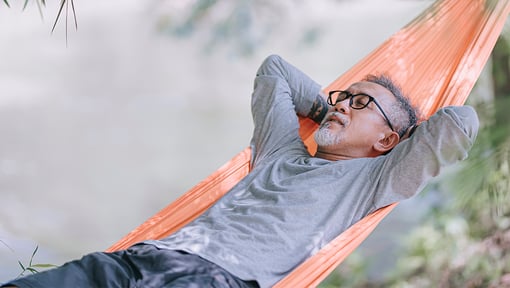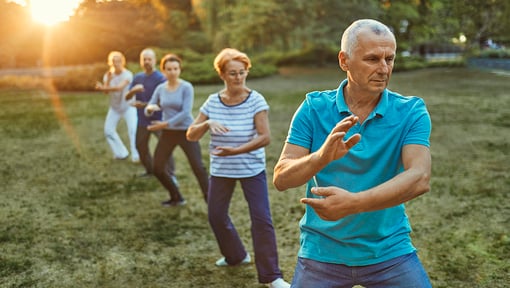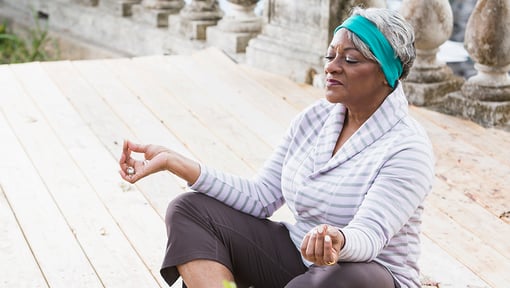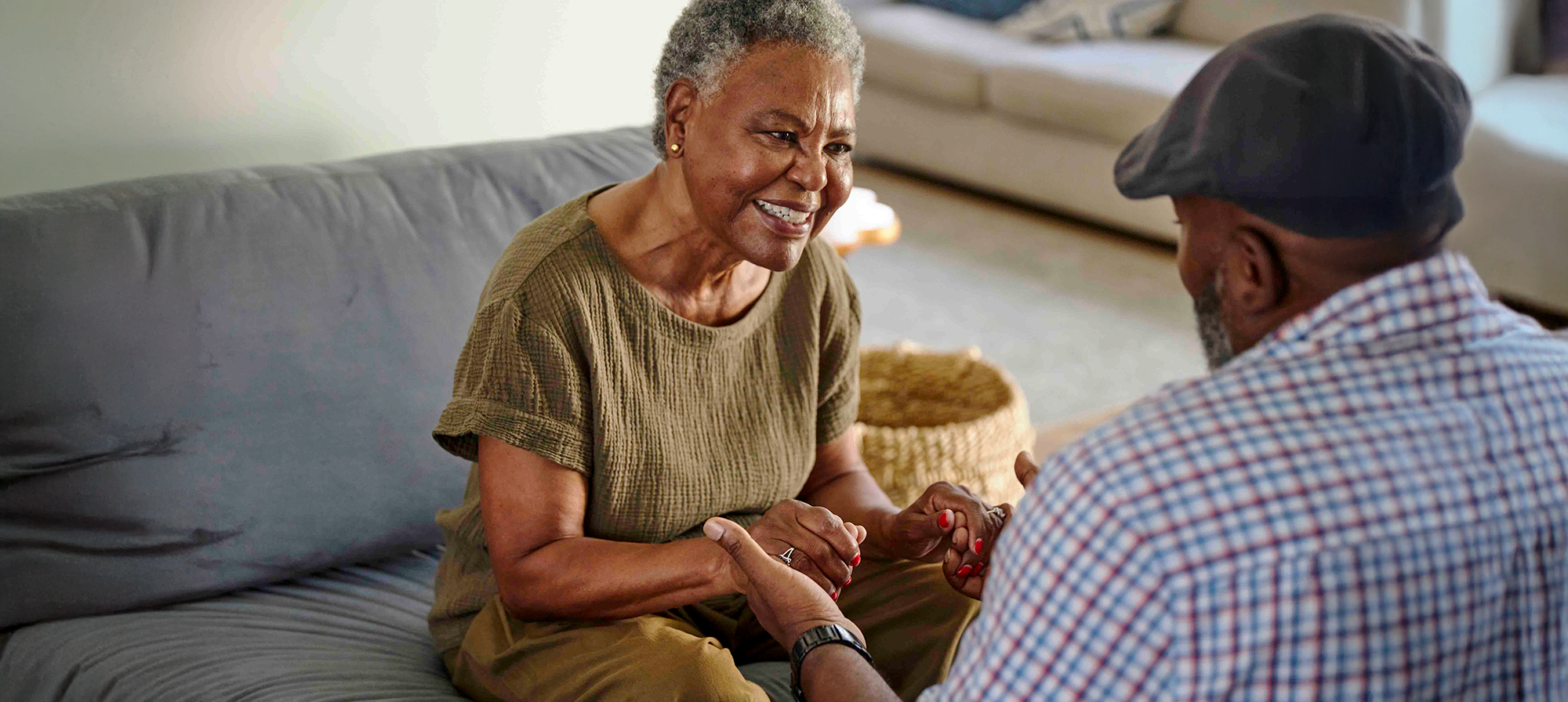Rest and relaxation—or R&R, as it’s often called—is key to a healthy life. But for many, R&R doesn’t always get the attention it’s due.
Taking a break during the day to rest and relax may not feel natural. Even if you’re retired, you may have adopted the belief that kicking your feet up now and then is a waste of time or somehow means you’re lazy.
Nothing could be further from the truth. Taking breaks to rest is vital for your physical and mental health. On the other hand, when you’re overworked or constantly on the go, chronic stress and burnout may result. That’s bad news for the health of your body and mind. And over time, it may raise the risk of a range of health conditions.
Being productive and living a full, busy life is great. But it’s also a balancing act. When you don’t take breaks now and then to rest, relax, and tune out, you may end up being less productive. Going nonstop may tire you out and make you more prone to errors. Your motivation can take a nosedive. You might become bored or moody. Your judgment may become clouded and your decision-making skills less sharp.
So, try not to think of R&R as wasted time or a sign of laziness but rather as a vital form of self-care. R&R can keep stress in check and help you recharge. That can leave you feeling more refreshed and able to live a more fulfilling life.

Additional health perks regular R&R can bring
When you take time each day to rest and relax, muscle tension starts to ease. Your brain may become quieter. You may start to feel calmer. R&R supports your health in other ways, too. It can also help:
- Increase concentration and memory
- Reduce stress
- Improve mood
- Improve the quality of your sleep
- Help you manage anger
- Lower blood pressure
- Increase energy
- Improve digestion
- Boost confidence
Take rest breaks that are free from distractions
Just the simple act of resting—doing absolutely nothing—can benefit you. Resting means stopping whatever activity or task you’re engaged in. Rest is more about “being” than “doing.” But resting may be harder for you than you realize. Phones, televisions, smart speakers, and even your wristwatch can interrupt your attempts to rest.
Find a quiet spot and silence your devices. Turn off those ringers and tune out text messages, emails, news alerts, and the junk phone calls. Sit, lie down, or close your eyes and just take a little breather.

5 ways you can rest and relax
R&R doesn’t have to take much time. Learning to step away from work, chores, or whatever is causing you stress, for even a few minutes, is a great start. If you need to, make time for R&R on your calendar. Think of it as an appointment you shouldn’t miss. Here are a few easy ways to get some R&R:
1. Take a nap
If you’re feeling your focus slipping during the day, a brief nap can leave you feeling recharged. A 15- to 30-minute nap can make a world of difference.
Be sure you don’t nap much longer than 30 minutes, though. Much more than that may leave you feeling groggy and disoriented when you wake. It can also affect how well you sleep at night.

2. Spend time with a hobby you enjoy
It might be that you’ve become so busy with life that you’ve forgotten to make time for your hobbies. You may need to carve out time to spend solely on your passion projects. These kinds of breaks not only help relax you, they can also fire up your creative side and use a whole different part of your brain.
It helps to choose something you enjoy. Whether your favorite pastime is playing a musical instrument, doing artwork, playing chess, or writing in a journal, a hobby you love can help you relax, ease your stress, and enhance your well-being.

3. Listen to music or read a book
Losing yourself in a novel (or audiobook) or listening to calming music is an effective way to relax and quiet your mind.
If you use a phone or tablet to listen to music, podcasts, or audiobooks, just make sure to silence any ringers and alerts. And try not to jump on your social media channels at the same time. Multitasking is not very restful or relaxing.

4. Exercise
You may be thinking, “How on earth can exercise help me relax?” Working out can take your mind off your worries, as well as release feel-good brain chemicals that help boost mood. And the relaxing afterglow of a good workout just can’t be beat.
Also, exercise doesn’t need to be intense to relax you. You can sign up for an intro yoga or tai chi session. Or simply take a brisk walk or a hike in nature. And keep in mind that exercise is not just a great stress-relieving tool. It also helps you keep a fit, healthy body.

5. Practice relaxation techniques
Relaxation techniques may help you relax on an even deeper level. These tools help you cope with daily stress and induce the body’s relaxation response. Try some deep breathing exercises or mindful meditation. Or think about getting a massage now and then. Yoga and tai chi can also help you relax more deeply.

Why do you need rest when you sleep every night?
It’s true that your body and brain get a chance to recharge when you sleep. Getting 7 to 9 hours each night is recommended for optimal health.
However, sleep and rest are not quite the same thing. While there is no recommended amount of rest you need each day, it is important you make some time for it. If you simply wake up every morning and go strong all day until it’s time for sleep again, you’re likely overdoing it.
That’s because being on the go right up until bedtime can make it tough to relax your body and brain enough to get to sleep. Finding time for quality rest and relaxation, especially in the hour before bedtime, can help pave the way to a good night’s sleep.
Learn about 4 simple rules to help you get to sleep every night.
When it comes to R&R, too much rest isn’t recommended, either, especially if that leads to too much sitting. But even 15 to 30 minutes of rest and relaxation a day can make a positive difference. So, try to find the balance that works best for you. Add a little R&R to your schedule and enjoy how much more relaxed, refreshed, and calm you feel.
Not a Silver&Fit® member? Learn more about everything the program has to offer, including more helpful healthy living tips like this, here on our website.
This information is not intended to take the place of regular medical care or advice. Please check with your doctor before using this information or beginning any self-care program. Images used for this article do not depict any members of the Silver&Fit program.
References
Almeida, D. M., Charles, S. T., Mogle, J., Drewelies, J., Aldwin, C. M., Spiro, A. III, & Gerstorf, D. (2020). Charting adult development through (historically changing) daily stress processes. American Psychologist, 75(4), 511–524. https://doi.org/10.1037/amp0000597
Breus, M. (2024, January 24). How sleep works: Understanding your sleep cycle. Sleep Doctor. https://sleepdoctor.com/pages/health/how-sleep-works
Mayo Clinic. (2024, January 24). Relaxation techniques: Try these steps to lower stress. https://www.mayoclinic.org/healthy-lifestyle/stress-management/in-depth/relaxation-technique/art-20045368
Nakao, M. (2019). Heart rate variability and perceived stress as measurements of relaxation response. Journal of Clinical Medicine, 8(10), 1704. http://dx.doi.org/10.3390/jcm8101704
Norelli , S. K., Long, A., & Krepps, J. M. (2023). Relaxation Techniques. In StatPearls. StatPearls Publishing. https://www.ncbi.nlm.nih.gov/books/NBK513238/
Robles, T. F., & Carroll, J. E. (2011). Restorative biological processes and health. Social and Personality Psychology Compass, 5(8), 518–537. https://doi.org/10.1111/j.1751-9004.2011.00368.x
Merriam-Webster. (n.d.). Rest. In Merriam-Webster.com dictionary. https://www.merriam-webster.com/dictionary/rest
Merriam-Webster. (n.d.). Relaxation. In Merriam-Webster.com dictionary. https://www.merriam-webster.com/dictionary/relaxation
This article was written by Jason Nielsen, edited by Gail Olson, and clinically reviewed by Elizabeth Thompson, MPH, RDN, on May 2, 2025.





